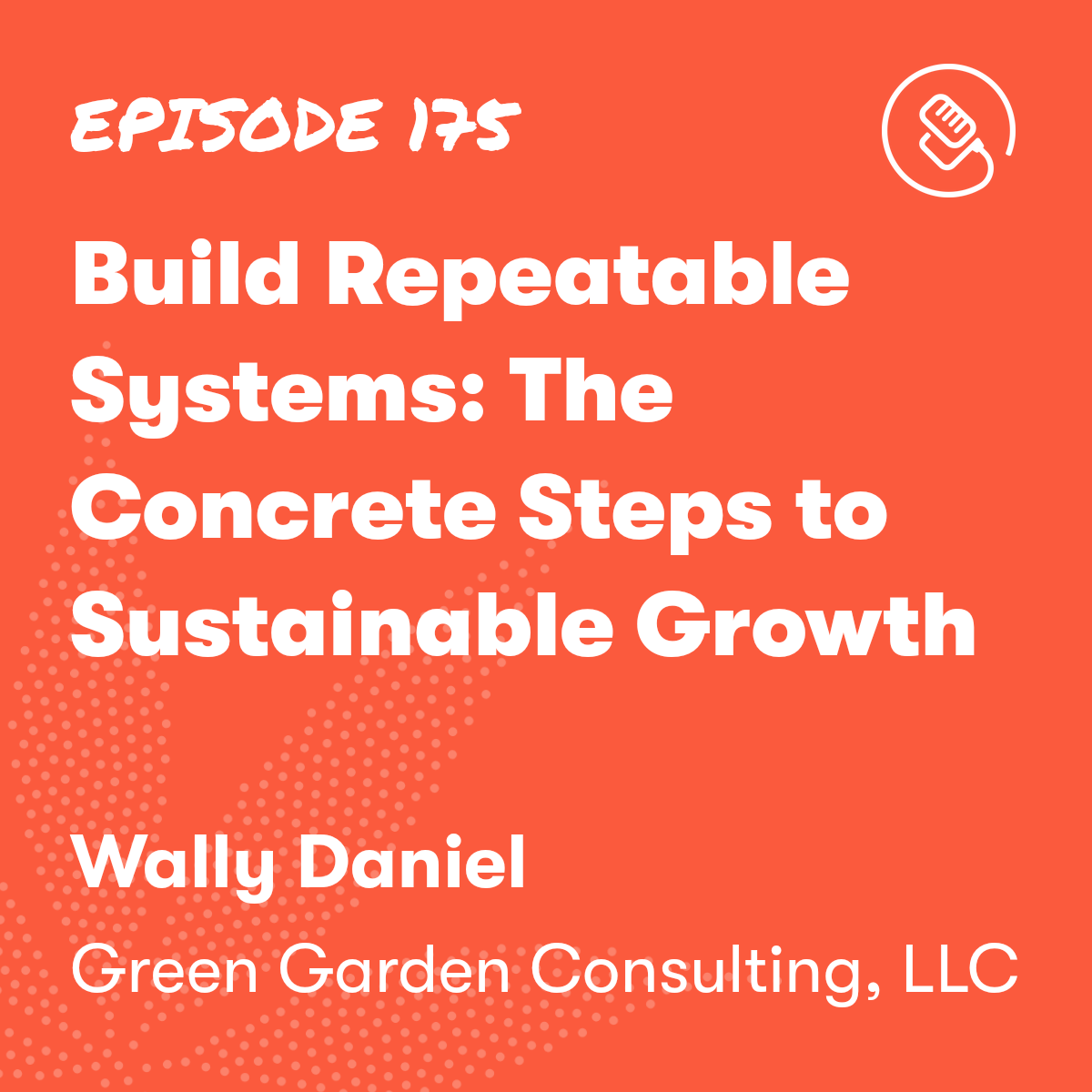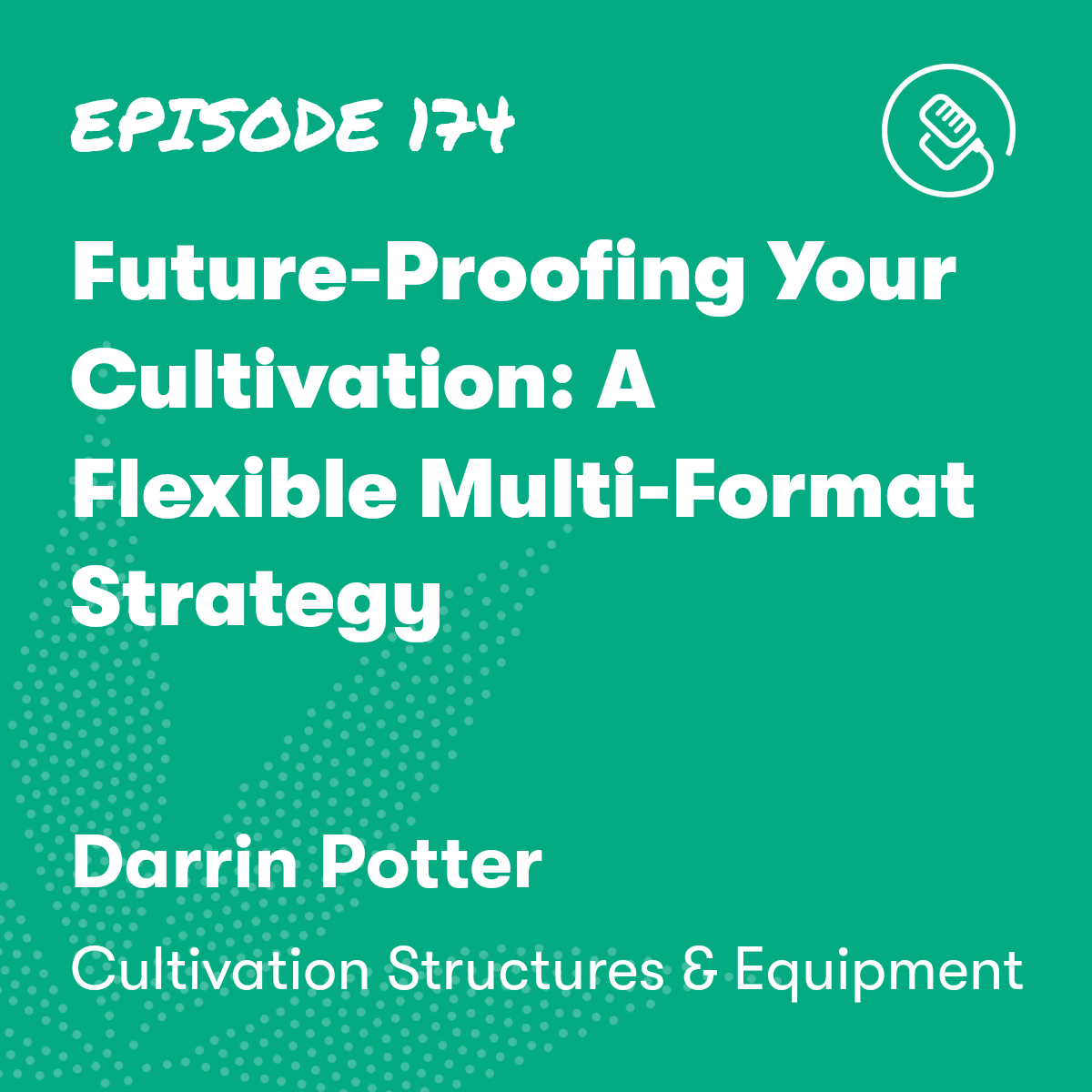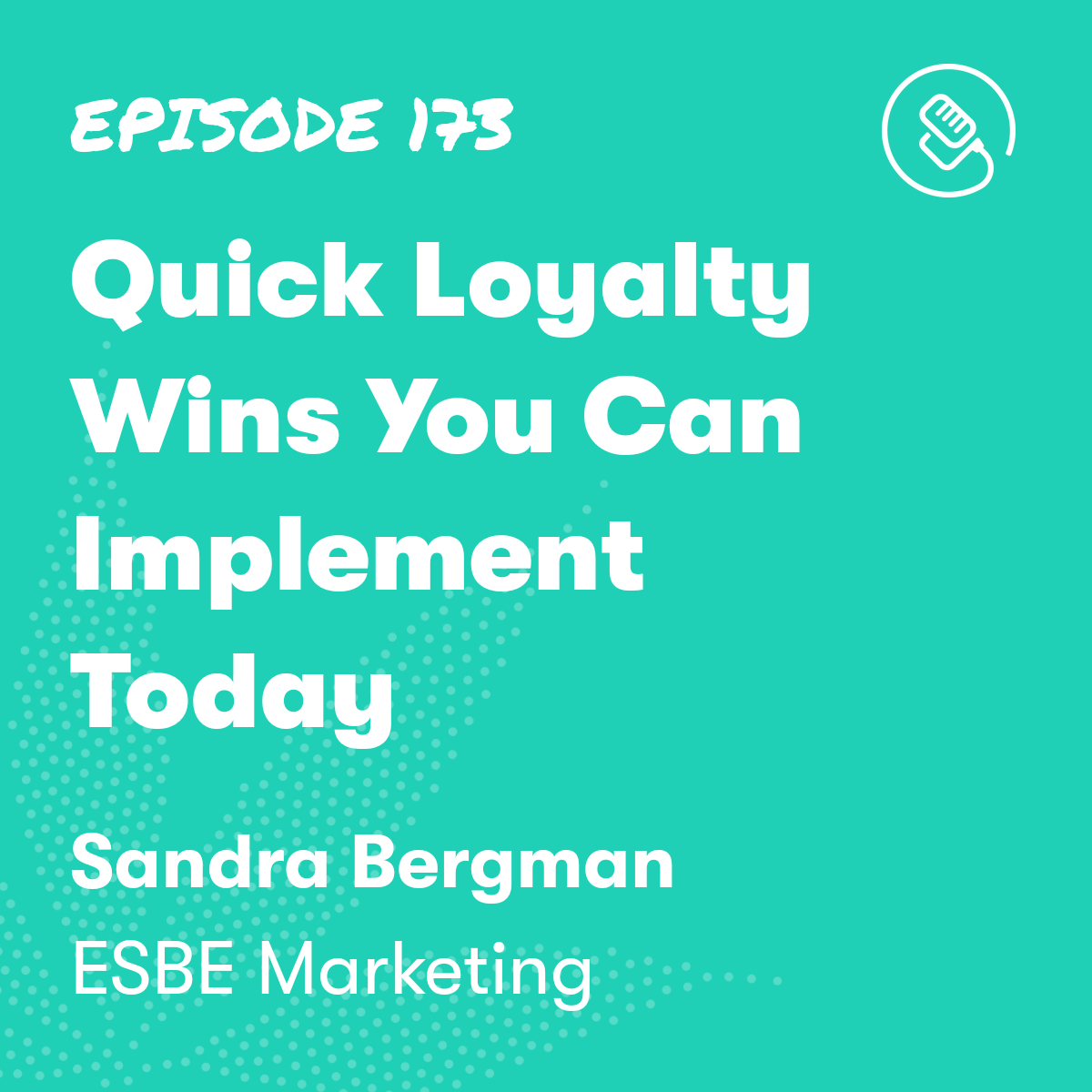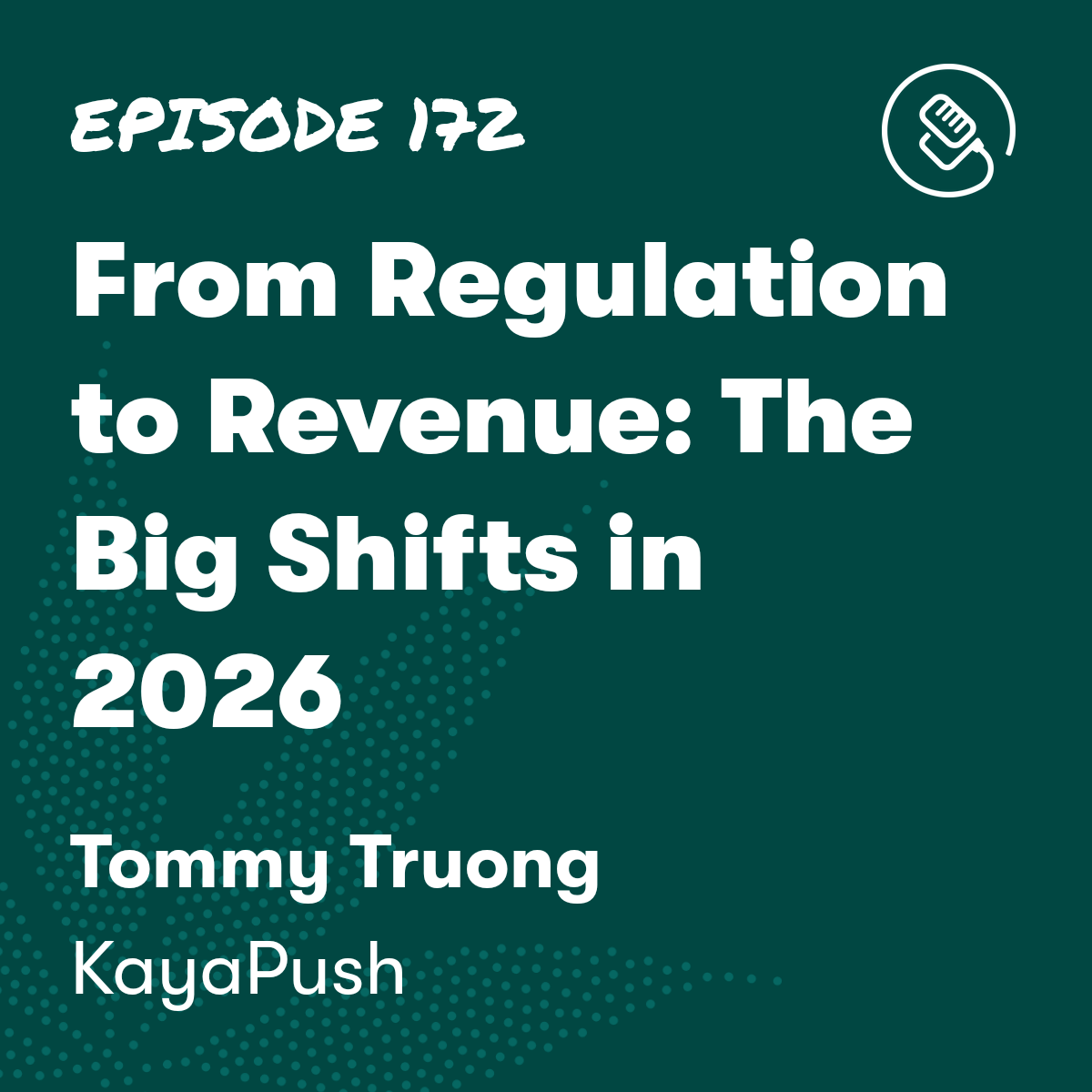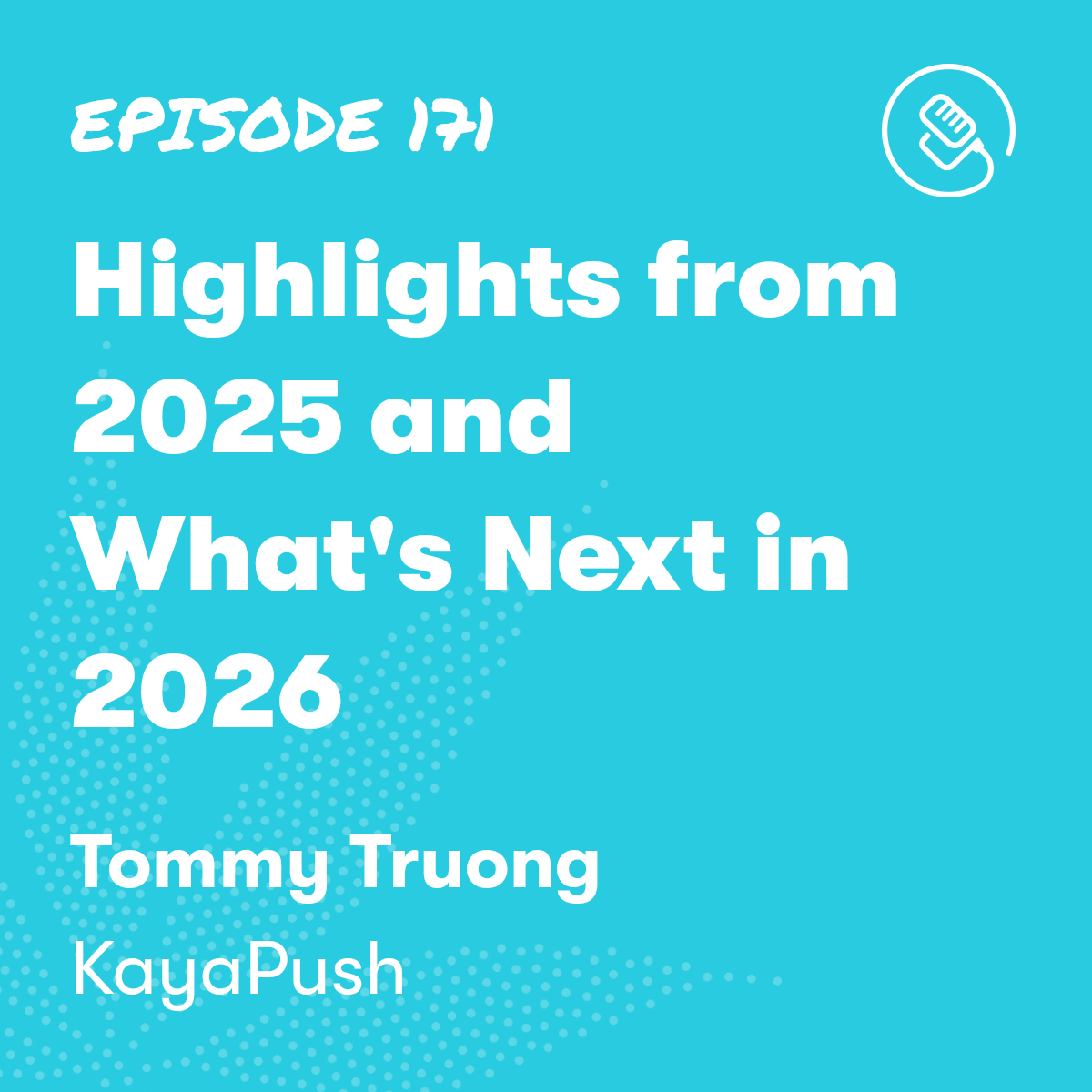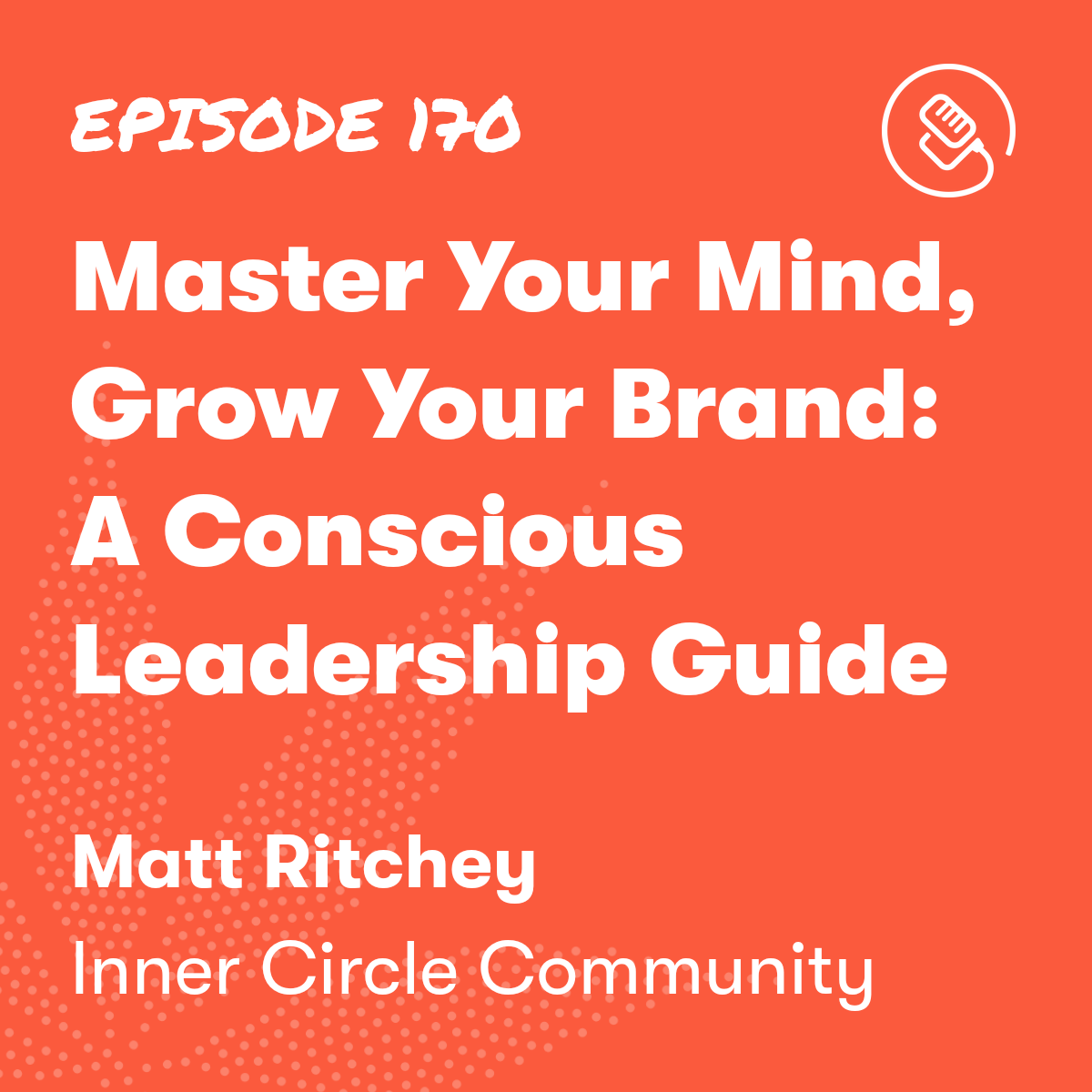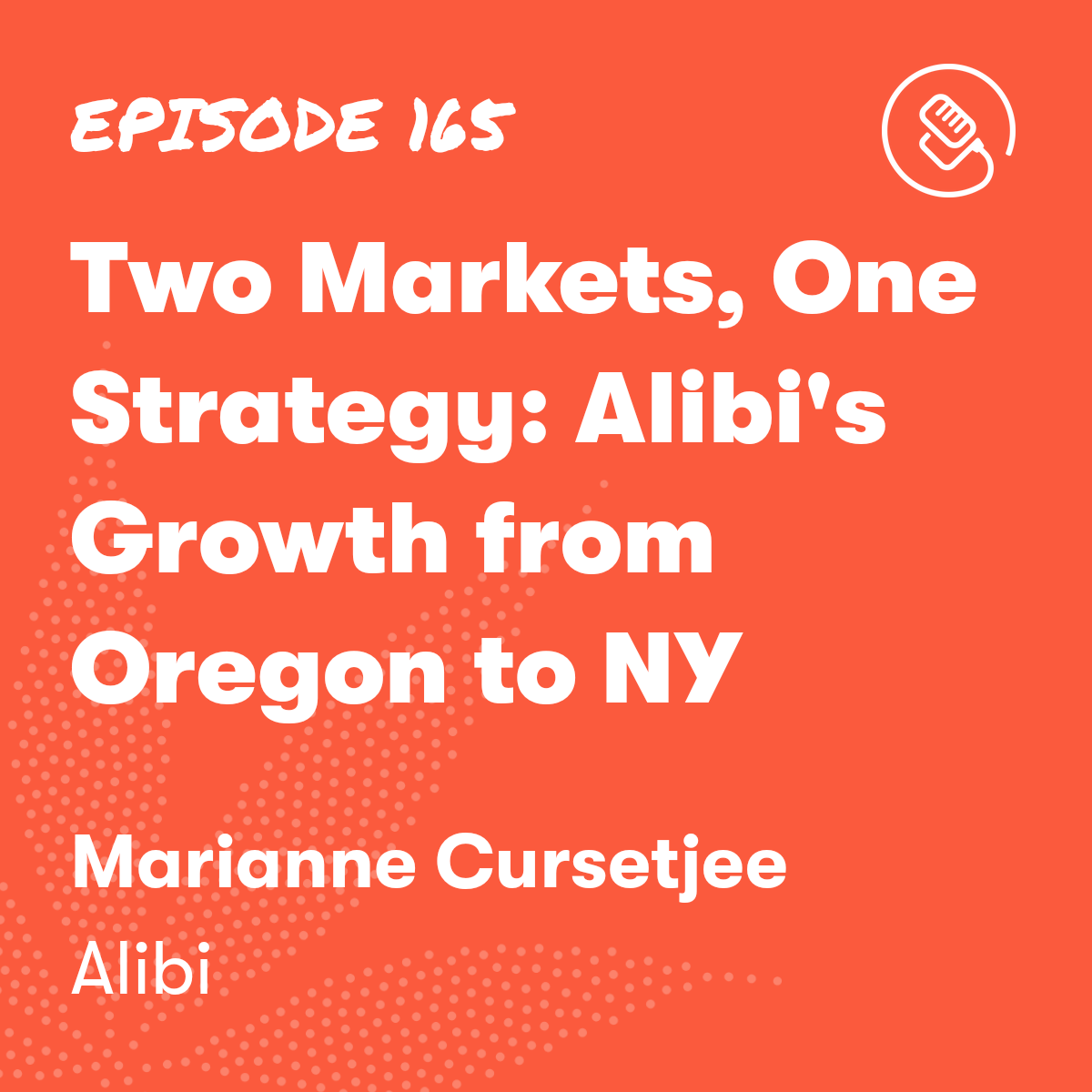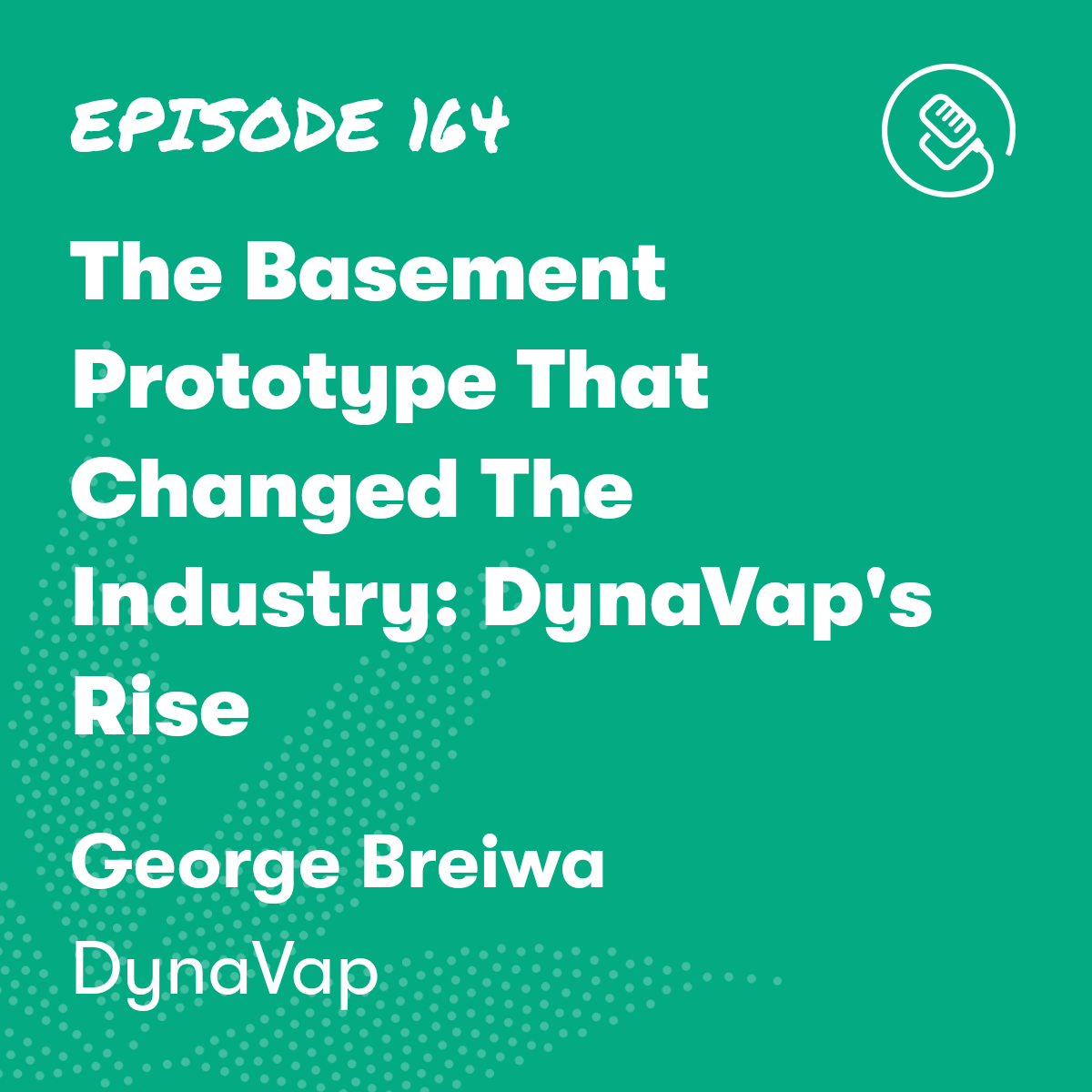

How to Ensure Compliance in the Highly-Regulated Cannabis Industry
Episode Description

Episode Transcript
Eduard Linetskiy: What are your assets as a licensee? Your employees, obviously your biggest asset. Without your employees, you're gonna fail. Your license. And behind that is your raw materials and you finish good's inventory, I mean, cash aside, right? So those are your physical assets in the four walls, and that's where you gotta keep good accounting over.
Tom Mulhern: Welcome to the Kaya Cast Podcast. I am your host, Tom Mulhern, and today we are talking all things compliance on the podcast. You know, as a cannabis business podcast, we cover all sorts of different topics, including taxes and budtender education and all of these different things that are so important to building a business.
But one of the most important things is compliance. Cuz if you lose your compliance, you could lose your business. And so today on the show we have Ed Linetskiy. Who is the Chief Compliance Officer at GreenSpacePro. And GreenSpacePro is a work management tool designed specifically for cannabis operators.
It integrates with Kaya Push and really offers your dispensary, your cannabis operation, an amazing tool to stay on top of all of the things that can sideline your business, including regulations, license, all of that sort of stuff. And so Ed and I dive deep into why people lose their compliance, the importance of compliance, the difference between cannabis compliance and other industries.
And it's a fantastic interview with really an expert in this field working in compliance for so long. Ed has so many great insights to share. So let's jump right into the show.
Tom Mulhern: Eduard Linetskiy is the Chief Compliance Officer for GreenSpacePro, a team collaboration and work management tool designed specifically for cannabis operators. It's built from the ground up to help you operate legally and efficiently. He has over 20 years of experience in the compliance field and has consulted with some of the biggest players in the industry.
Eduard is an advocate for cannabis and is dedicated to helping entrepreneurs succeed in this rapidly growing industry. He's an expert on topics such as business strategies, compliance, finance, and leadership. He received his MBA from New York University and he's passionate about helping businesses optimize their operations to maximize their success.
So Eduard, welcome to the Kaya Cast podcast. It's amazing to have you on here. You're our second GreenSpacePro person to be on the podcast, so welcome.
Eduard Linetskiy: Fantastic. That's a great intro. Fair. Really appreciate that.
Tom Mulhern: so what's your background? And then how did you end up in cannabis?
Eduard Linetskiy: My first real job outta college I was a finance and operations examiner for the then New York Stock Exchange regulatory arm, which then merged into finra which took the former N A S D regulations and New York Stock Exchange regulations became what is now known as finra. And I've been in regulations ever since. At some point in my career after I moved to Los Angeles I was looking for a new challenge.
And I was just looking for work and a role came up. You know, back when I applied, it was still not common to post cannabis jobs in the job description. It was kind of code for weird industry and like, okay, I kind of got the gist of it and I thought this could be interesting. And I went for my first interview and the energy and the passion of the people who interviewed me and just in that office was incredible. Something I haven't experienced since my first job outta college at finance.
And my first role in cannabis was with Med Men. At the time in 2017, you know, Med Men is an aspiring high octane organization really pushing the envelope across the board.
They were looking for someone to build and implement the regulatory framework as they started to expand into new states and they would acquire licenses and, and through acquisitions or his existing acquisitions.
And, you know, as my journey continued I started my consulting practice. So I do advise an independent basis companies of large and small. Um, I actually really enjoy working with small because there's a bigger impact that I can make and help people and tailor a regulatory program that is right for their business.
And in that journey, I met with Mike Wilson, who's the founder of GreenSpacePro. And when I saw the platform, honestly, I, I, I said, Mike, where was this three years ago when I was losing sleep and had two whiteboards and trying to remember everything and kind of make work in other calendars and systems and paper just to Jerry rig platform that really can facilitate what you need to support a regulatory program on a large scale basis. And we've been growing it and improving it ever since, and I'm kind of pretty excited as to what we've accomplished in the last couple of years in terms of both reach and know what the product is able to do.
So let's, let's start there. Like, let's look at GreenSpacePro. What solutions does GreenSpacePro offer for cannabis operations? Like, what are some of your, high level solutions that you offer?
For a company to be able to support their employees and essentially continue to generate revenue, they have to maintain their licenses. One of the things that I've seen many companies struggle is to timely submit regulatory license renewals.
Because depending on jurisdiction you operate, it could be submitted the day before, the day of, or has to be submitted 45, 90 days beforehand. And you really have to stay on top of those general requirements. So what GreenSpacePros are able to do at the very baseline is, You're able to keep all your licenses in one place.
And honestly, I, I personally sleep better on behalf of everyone who is within GreenSpacePro because I've helped some of the folks implement some of these procedures within the platform that their licenses will not expire because without a license, you're not a business. Right.
what I suggest often is to look at your tech stack, right? And how can we minimize your tech stack to as few as possible systems so that it's a one stop shop. And this is what I like about GreenSpacePro. It allows you to combine a lot of the systems that you have into one platform.
It could be a document management system, it could be an s o p management systems. You can project manage out of it. There's Gantt, charts you could assign tasks and deliverables.
It's reaches very robust, which is, as you could tell, I'm very passionate about it because it, it helps you do all those things that are very vital to the success of an organization,
And it's, it's, it's a phenomenal resource. Honestly, that's made my life a lot easier and allows a lot of clients easier as well.
Tom Mulhern: I wanna focus a bit on your experience in compliance. And I wanna start by kind of asking how did your experience in the financial industry with compliance, how did that impact your role with cannabis compliance?
And what's kind of the difference there? I mean, you kind of alluded to it earlier, but what are some of the things that are similar and what are, what are some of the major, major differences?
Eduard Linetskiy: What really attracted me to cannabis is that.
There is you know, 10 ways to interpret some regulations, and I think that's important while complicated, right? It's complicated and a lot of people complain, well, regulations are unclear. Well, sometimes it's actually beneficial because it gives you the opportunity to speak to the regulators and communicate with them and educate them as to what these regulatory requirements may imply and what you think they are intended to do.
So it's really. The spirit of the law and also what's written right? And you have seen numerous companies in this industry take regulations and interpret them successfully to meet their needs of their business model. While other companies may have interpreted them differently and were not able to achieve the same level of success because they figured to limit themselves and not have open dialogue with the regulators.
And let's partner, let's figure it out. You have a lot of folks like myself and attorneys in the industry who have been through numerous sets of regulatory frameworks and can offer guidance and for you to make business decisions based on, but ultimately, if there's something really, really big that really impacts your business, I find it beneficial to make a partner of some regulators.
I think a lot of people won't agree with me on that. And you know, there are times for business decisions and it's a business's kind of option to make a business decision on a risk basis.
What are some of those,common mistakes that dispensaries make when it comes to compliance,
What I find as one of the biggest gaps in most organizations, regardless of license type is inventory. One of the first things I look at at organizations when I just walk through the door is I discuss inventory.
What is inventory accountability? how accurate are you? Or do you see a lot of theft? honestly, a lot of folks don't do audits because you know, depending on the regulatory framework you operate in, some regulators are very light touch about these audits.
So unless you do proper inventory, auditing and accounting and system comparison, which is generally basic reconciliation, you won't know.
won't know if boxes of inventory are walking out the door. And sometimes when you do an inventory and you realize, Hey, I've had thousands of dollars of inventory walk out the door. How, where is it? How can I fix that? So, pay attention to inventory. That's first and foremost. what are your assets as a licensee?
Your employees, obviously your biggest asset. Without your employees, you're gonna fail your license. And behind that is your raw materials and you finish good's inventory, I mean, cash aside, right? So those are your physical assets , in the four walls, and that's where you gotta keep good accounting over.
Tom Mulhern: As a business owner, how, how can they keep up to date with the different changing regula regulations with local, state, federal, they're always changing. you've encouraged them to make sure their inventory's correct, but what if something changes?
How, how can they stay up to date with all of those changing regulations?
Eduard Linetskiy: Hopefully you have somebody in-house dedicated in a compliance or operations capacity. Like even if you're a single shop, right? Whoever's managing your inventory one of the responsibilities should be to stay on top of regulatory changes.
Creating a working group inside your organization, planning for it, and then obviously executing, right? Because you can plan, you know, for months, but you have to execute. So that's the other thing is, you know, you have to identify people in your organization who can successfully execute on not only your business model, but on all the other interim things that come up, right?
You gotta be able to rely on them because without an executor, there's just a lot of plan, right? There's, there's no workers, there's just ideas.
Tom Mulhern: I spoke with Katelyn Coskey from Point Seven Group, and she said when she was a bud tender, she would just read the regulations, kind of similar to yourself.
Eduard Linetskiy: Honestly, when you have folks in your organization, this is not their responsibility, and they say, what part of the regulations do you think I should read so I could be better at what I do? To me, that, that obviously is a, is a regulatory person, right?
To me, that's the music to my ear, like absolutely. I get very excited about like, Hey, call me. I can talk you through this. Here's the section, read it. Happy to answer questions, walk you through this, and honestly, what you find is that. A lot of the folks who are, you know, like herself as a bud tender, if they wanna know regulations, a lot of folks find their ways into like a back of house role and then maybe find their way into a corporate role.
Or if they get really good at what they do, they find their way into bigger organizations or consulting firms or whatnot, right?
So knowing some of the intricacies of the business from a regulatory standpoint can really benefit people at all levels of the organization.
Tom Mulhern: What are some of the consequences for dispensaries that fail to comply with regulations?
Eduard Linetskiy: The most common one is fines, right? Usually the first time, unless it's an egregious violation, it's a warning, right?
It's a warning. Please provide a corrective action report. And then we will be back to check on you later to make sure you did what you said you did right?
they just go to fines and recidivous violations, just repeat violations, right? Those are the worst, right? So the rule of thumb is, You get knocked on something once you get a $500, $2,000 fine. Deal with it, but never let it happen again.
Because usually it starts to ratchet up with each identical violation and it becomes multiples, and eventually they just get really annoyed with you. The more violations you have. More repeat violations you have, the more annoyed your inspectors get and the more they're gonna get you for.
if you know you have 50 tic tac things, they start to add up and then they get really frustrated.
And then a frustrated examiner is not something that you want. Because they can get you for everything and that, you know, $500 fine is now 10, 15, 20,000 because they got you for 5, 6, 7 things and each one of them is like two grand. And now, now your bosses are pissed because now it's costing the money.
it's all goes back to building out an effective compliance program, having the checks and balances to manage that compliance program and having the visibility into what's going on in a day to day to make sure you can track those regulatory requirements from your licensees.
Tom Mulhern: Now looking towards the future, what are some of the biggest changes and most exciting changes you see happening in the industry?
Eduard Linetskiy: There are the changes that I'd like to see happen. And then there are things that I'm actually seeing.
So what I'm seeing happening is that the regulators are really, I think trying to keep people accountable for the regulatory requirements, trying to focus on the consumers.
What I really hope is that regulations are written, not only the way to make sure the product is safe and secure from both a public health perspective, but also from a, you know, diversion and theft perspective, but also thinking about how their rules and requirements are impacting the consumer.
You're also seeing limits on product manufacturing certain requirements on the operators that result in really, really high costs to the end consumer. So, and then, then states are surprised. Why is our tax revenue not where it should be?
Why are prices so high? Why are consumers, and they put pressure on the operators. But if you look at the heavy handedness of certain regulations, like if you think about it, it's just something very simple. I keep going back to inventory because it's a pretty passionate topic of mine, having the mandate of full soup to nut inventory reconciliation every week is highly burdensome in the business. Now, there are different ways to do it. There's best practices. There is box counts, right? There's gap inventory accounting versus non gap inventory accounting, because some regulations actually acquire for gap, or if you're a public company, a whole different conversation, right?
But still it's, problematic. Imagine you distribute your distributor with a 20 million worth of inventory and you have to do inventory every seven days.
all these things go to the bottom line of the operator and say, wait a minute, I'm selling this thing for 10 bucks. Well, I'm losing a ton of money now I gotta raise prices, right?
And every time you raise prices due to generally taxation, depending on jurisdiction, prices are raised now just by 10%. Prices are raised by 10%, plus the factor of taxes on top of that price increase, right? So now the basket size become smaller. Now the customer's impacted because, you know, the discretionary income is not.
So there's a lot of different impacts, but I'd love to see the, mainly the regulators partner to some extent with the businesses that they're trying to attract to their jurisdiction, to really understand how the regulations are impacting operations and what impact on prices those regulations have.
Because some regulations you can see how they evolve over time because new regulations are always iterative. Like every, you know, 3, 6, 12 months, they're always changing and you can see that, you know, there are clear communications with the operators who identify inefficiencies or regulations. And then they get worked out over time.
Some regulations are r rolled out and I think they're really good and they're really business forward and they help the industry as a whole and they help normalize the concept of cannabis, which is the goal right? Having it be normalized, having people walk into the stores and they feel like it's a comfortable, you know, everyday shopping experience and not having them feel like they're shopping for an narcotic, which is not right.
So I think that's what I'm most excited about seeing, and I have been seeing that little by little, so it's getting better for sure.
Now you've worked with tons of dispensaries in your role with CCBC Group which is your boutique compliance business with GreenSpacePro. And then, you know, you worked at the Apple store of dispensaries. Med Men. So what advice would you give to a cannabis owner to grow their business and stay compliant at the same time?
You kind of have to have a come to Jesus moment with your business model and the regulations and your internal operations, right? what is your business objective like?
What is your business model? Once you identify where your business objective, and it's not just, Hey, I wanna make money. Well, yes, everybody wants to make money, everyone to be profitable, but how? what is your pricing strategy, right? What is your inventory strategy?
What is your product strategy, right? What is your marketing strategy? All these things ultimately to some extent, have a basis in regulatory compliance. I wanna sell this product, this manufacturers making like, ah, well here's the thing that product may be borderline compliant. Do you want to sell and put additional risk on yourself?
Yes. No, maybe, sorry, you figured it out. But ultimately you establish a business model and your strategy.
Then you identify where your regulatory gaps are or your regulatory needs are, and try to identify, okay, does this strategy add additional risk to my business? And then you identify what those risks are and you decide
your plan forward with the person who's guiding you on those regulatory requirements, right?
There's different approaches to regulations, right? There is no one size fits all model. It needs to be tailored to your business. And I couldn't emphasize that more. Yeah, there is a framework to compliance, but step one is what are you trying to accomplish as a business?
Who are you? Where are you and where are you going? And who are your customers? So once you can figure that out and document that then you take the regs and you apply it, and then you just have to be vigilant about it.
You have to know your business on a day-to-day basis, and you have to have clear and transparent and even more so honest communication within your environment, and you have to instill that from the top down.
Your employees need to know that they could come forward to you and say, Hey, I messed up. I accidentally give this client the wrong product. I accidentally oversold by a pre-roll.
Now, certain things are fireable offenses and you have HR policies, et cetera, et cetera, fine. But ultimately they need to feel comfortable that they can come to you and they understand that, hey, by coming to you, they're actually helping you protect the business. Because then you could sit down and say, okay.
What was a systematic failure in our processes that resulted in this issue, and how do we address that going forward so it doesn't happen again? The worst thing I've seen is that due to a lack of communication and transparency and trust within organization thing, things just get hidden and they come out usually when there's a cycling of either management or lower level employees.
set standards, have and promote good communication and then figure out ways to not let same issues come up again. Just solve the systematic gaps and you'll be most of the way there to having regulatory compliance actually contribute to your overall business success.
BecauseThe flip side to that is you would be surprised how many times people on the line level who feel comfortable questioning the processes will actually improve and streamline your operations and save you money, which goes straight to margin dollars, right?
They will save you money, especially if they've taken the time to read the regulations and they can start to question, Hey, why are we doing it this way? If I just move one seat over, I can do this 10 times faster, but somebody sat me here two months ago and that person is not longer here. And there were a menace and that's why I never questioned it.
But now we have a new management team. Now I feel more comfortable bringing these things up, right? So just make your employees comfortable in speaking to you honestly and openly, and question it because you know, when there's no ego about process, you're more likely to succeed, right? Because. I'll never say that my way is a hundred percent the right way.
My guidance may be rooted in a lot of experience and best practices that I've seen across a broad spectrum of operations, but it doesn't mean it's the best way to do it, and I'm completely open-minded. If somebody wants to do it a different way, I. And then your job is just to support them and what their business model is and how they wanna approach it.
And then you learn from that. And then you take that where else you go and you say, Hey, you know, I've seen this model. Yeah, this maybe works and let's just make sure it works within your regulatory framework, or how we could partner with the regulators to, maybe not today, but maybe in six months we'll get there.
Tom Mulhern: That advice right there, that nugget is what could really transform. Their business. So now, if there's someone that wants to reach out to you or find out more about yourself, your, your boutique business or GreenSpacePro, how do they connect with you? Ed?
Eduard Linetskiy: Through GreenSpace, there's a, there's a direct email on the website that you could contact and you could just ask to speak to me. Or if you want me to see how GreenSpacePro can help your organization, they'll connect you with me and I'll, I'll jump on the demo.
If you would just wanna reach out to me it's Eduard, e d u a r d. It's a funky spelling, so Eduard with a u@ccbconsultant.com and just shoot me an email you wanna connect. Happy to do it. I'm always talking to people in the industry. Happy to share the knowledge.
it's extremely important to work together, especially if you're not in a competing town. If you're in southern Jersey or northern Jersey, you're not competing.
So share best practices, share wholesale prices. Don't tell the wholesalers, but share wholesale prices. You know, ultimately, you know, we should all, we should all be working together to make sure everyone's profitable, right? My goal is not to make sure somebody wins over somebody else. I think there's room in the industry for everyone and every level of operations at every level of supply chain.
So if we all work together, Brands help retailers, retailers, help brands, manufacturers, cultivators, et cetera. I think we could all do just fine here.
Tom Mulhern: Ed, thank you so much for taking this time to be on the podcast, share your experience, thanks for coming out. I really appreciate this.
Eduard Linetskiy: is great. Thanks Tom. Really appreciate your time. Have a great one.
Tom Mulhern: Over and over again, we hear how important that inventory control is because if you don't have a handle on your inventory, you don't know what products are coming in and coming out, and so I really appreciate Ed's advice of making sure your inventory is under control, and then also training your people and finding those point people.
that really love compliance and regulations and, and helping them to grow in their career. Finding those people that are inventory people that, that their brain just works that way and getting the right systems in place, but also getting the right people in place.
So if you wanna find out more about GreenSpacePro, if you want to contact Ed. If you wanna find out more about his boutique company, CC BC Group, we'll have all the links in the bio of this podcast so that you can reach out to Ed.
And I want to encourage you, get a demo of GreenSpacePro because whether you are just starting out or whether you've been in the industry for a while, GreenSpacePro will. Alter and make your business so much better. It'll make you more effective, more efficient. It'll save you time, it'll save you money.
And while you get a demo of that, you should also get a demo of Kaya Push because hey, those two systems work hand in hand. So if you want to schedule a demo for either of those, check out the links in the bio. And thanks again for listening to the podcast. We've got, we've had some really good conversations with people like Ed, who are such industry leaders, such experts at what they know and are able to dial in the conversation, dial in their knowledge to really help you learn.
This is a, a free cannabis University did help you get better at running your dispensary. So thanks for tuning in. Make sure you subscribe to the podcast and we'll see you next week.
